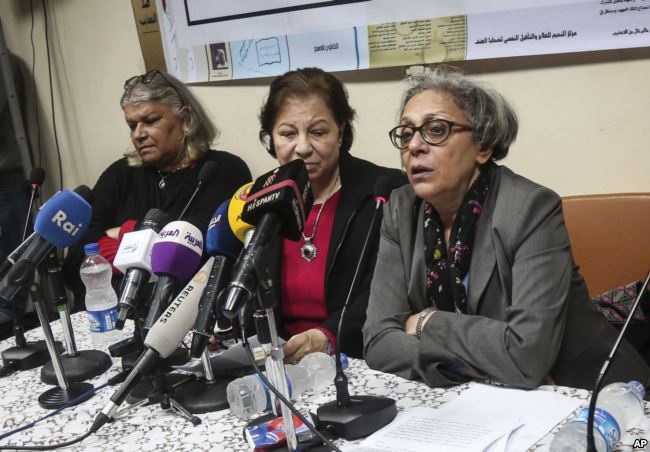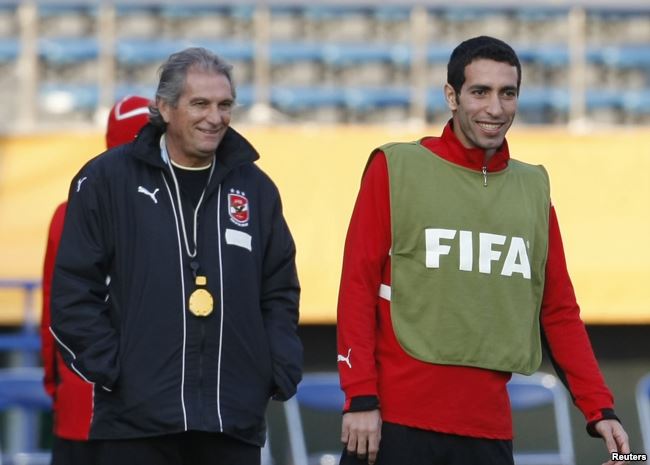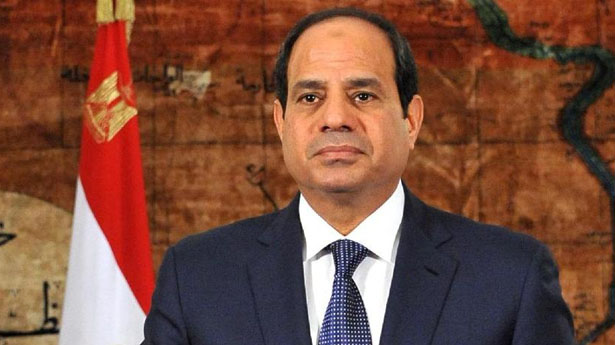Egyptian officials are buoyed by media reports that U.S. President Donald Trump is considering designating as a terrorist organization the Muslim Brotherhood, a transnational Islamist movement Egypt’s general-turned-president Abdel-Fattah el-Sissi has been urging Washington to proscribe for the past three years.
They say it is the first fruit in improving relations between Washington and Cairo, and that they hope the Trump administration will ease rights-related conditions introduced under former president Barack Obama on the $1.3 billion in U.S. military aid Egypt receives each year.
Liberal and Islamist activists as well as international rights groups are alarmed, fearing that the Trump administration will entirely shelve human rights concerns in the name of the war on terror. The Egyptian government has been fighting an Islamic State insurgency and both Trump and Sissi view Islamists and jihadists as indistinguishable.
Rights groups warn that prescribing the Muslim Brotherhood, or even considering designating it a terrorist organization, will only worsen the plight of activists and encourage the Egyptian government to crack down even harder on opponents of a regime that have in effect banned public criticism and even peaceful opposition, whether mounted by Islamists or secular liberals.
On Thursday, Egypt’s police closed the El-Nadeem Center, a rights organization that documents alleged abuse of detainees by Egyptian police and security agencies. For weeks, the center has been fighting a court order to close it. Aida Seif Elldawla, the founder, said on her social media accounts that staff arrived to find that police had sealed off the center.

FILE – Aida Seif el-Dawla, Suzan Fayyad, center, and Magda Adly, right, co-founder of El Nadeem Center for Rehabilitation of Victims of Violence, hold a press conference in Cairo, Feb. 21, 2016. On Feb. 9, 2017, Egypt’s police closed the El-Nadeem Center, a rights organization that documents alleged abuse of detainees by Egyptian police and security agencies.
The Nadeem Center is one of several non-governmental organizations under investigation on charges of illegally receiving foreign funds.
And on Tuesday, as news reports mounted of a possible U.S. ban on the Muslim Brotherhood, the Egyptian government issued a mass summons for more than 1,500 people put on a ‘terror list’ for allegedly funding the Muslim Brotherhood, which was banned in Egypt shortly after the military, led by Sissi, ousted Egypt’s first freely elected civilian president, Mohamed Morsi, a U.S.-educated engineering professor in 2013.

FILE – Head coach Manuel Jose de Jesus and Egypt’s football star Mohamed Aboutrika take part in a practice session for the FIFA Club World Cup in Tokyo, Dec. 12, 2008.
Former member of parliament Azza al-Garf, and retired international football (soccer) player Mohamed Abu Trika, are among those being summoned for interrogations.
Human Rights Watch said in a statement this week that “designating about 1,500 citizens ‘terrorists’ for their alleged assistance to the Muslim Brotherhood reflects the authorities’ indiscriminate use of broad counterterrorism laws.”
Those on the list can face travel bans and the seizure of their assets without authorities having to secure a conviction in a court of law.
Last month, Joe Stork, deputy Middle East director at Human Rights Watch, warned, “President el-Sissi’s government is consolidating and escalating repression. Absent strong responses from the international community, authorities will continue to squeeze the space for exercising basic freedoms into nothing.”
The Trump administration views Sissi as a bulwark against jihadists.
And there seems to be mutual admiration between Trump and Sissi. After their first ever meeting in September, the Egyptian leader described Trump as “a strong leader” and Trump returned the compliment, describing Sissi as “a fantastic guy.”
“Both have spoken about a unique personal chemistry that animates their relationship,” says Dina Rezk, a lecturer in Middle Eastern History at Britain’s Reading University.
Chemistry isn’t everything, she says. Aside from mutual admiration, the unfolding friendship between Trump and Sissi is underpinned by common ground on a raft of issues.
Speaking at the Cambridge Intelligence Seminar last month, Rezk said the two leaders have bonded also because of their antagonism toward political Islam. “They have united behind a narrative of the Muslim Brotherhood being a radical terrorist organization. That is very important in legitimizing the current security policies of the Egyptian government and its political legitimacy,” Rezk said.
“Egyptian government officials see Trump’s arrival in the White House as a victory for them, too,” she added.
Under Obama, Sissi and his aides frequently sparred with Washington over Egypt’s human rights record since the Morsi ouster. The Trump administration’s promise to focus on stability in the region and not on regime change or building democracy has come as a relief in Cairo.
In a foreign policy speech in April, Trump criticized Obama for his “mistakes in Iraq to Egypt to Libya,” arguing that U.S. support for Arab Spring uprisings “helped to throw the region into chaos, and gave ISIS the space it needs to grow and prosper.”
He added, “It all began with the dangerous idea that we could make Western democracies out of countries that had no experience or interest in becoming a Western Democracy.”
Like Trump, Sissi is opposed to the nuclear deal between Iran and the Western powers reached in July 2015 that puts limits on Iran’s nuclear program in exchange for sanctions relief. Trump has promised to “rip it up.”
Sissi has retained a diplomatic silence on Trump’s recent executive order banning travelers from seven Muslim-majority countries, although Egyptian politicians loyal to the government and pro-government media have condemned the temporary ban, fearing Egypt could be included.
Trump administration officials, though, have moved quickly to reassure Egyptians that the country will not be added to the list. On Wednesday, Secretary of Homeland Security John Kelly said no additions to the list are currently being planned. He said that the countries that were selected were ones that the United States has no real confidence in when it comes to helping to vet people.
“We’re satisfied that most other countries …can provide the information we’re looking for,” Kelly said.

